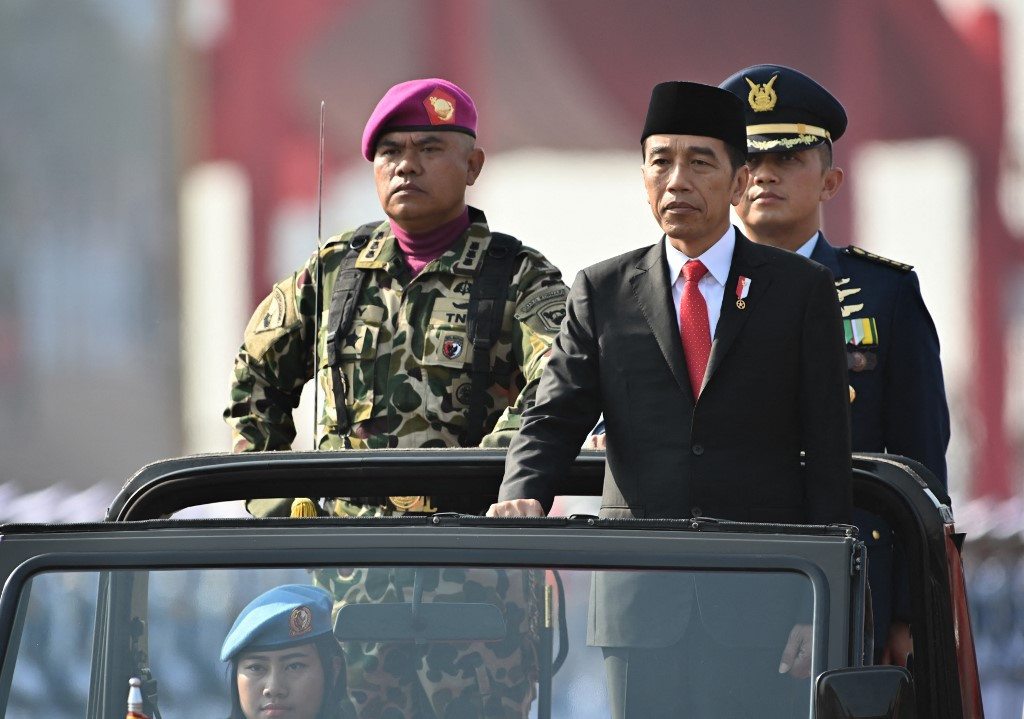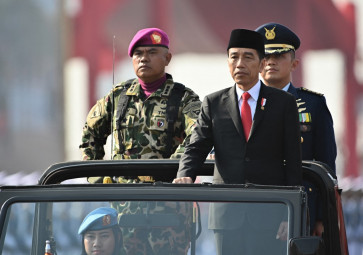Popular Reads
Top Results
Can't find what you're looking for?
View all search resultsPopular Reads
Top Results
Can't find what you're looking for?
View all search resultsJokowi’s governing algorithm, a playbook for the next president
With such an overwhelming coalition, Jokowi maintains a relatively stable balance in the executive and the House of Representatives to enact his priorities on infrastructure and pandemic recovery and to direct the delivery of policies.
Change text size
Gift Premium Articles
to Anyone
F
rom earlier this year until quite recently, the national political sphere has been embroiled in an increasingly tenuous clash between two powerful competing groups.
One, promoted by several senior politicians and ministers – including the President’s most trusted lieutenants – wishes to extend the current presidential term for another three years or to allow Joko “Jokowi” Widodo to run for a third term. They contended that Jokowi needs more time at the helm to steer Indonesia out of the severe downturn caused by the COVID-19 pandemic.
Others, a mix of the opposition figures and Jokowi’s political allies, insist on the scheduled 2024 election. The two groups were at loggerheads and the tension erupted into massive student demonstrations in early and mid-April. For the time being, President Jokowi has attempted to calm nerves by committing to the 2024 election timetable.
Indeed, the President’s approval rating – while recently in a downward turn – is still high for a leader in a democratic society. Inevitably though, Indonesia will have a new president by Oct. 20, 2024.
Previously, we offered a political algorithm for parties and candidates who would vie for the presidency in 2024 (The Jakarta Post, Feb. 18). Extracting from previous presidents and the Jokowi years, we have extended this into a governing algorithm so that the next administration can pursue its ambitions on social development and economic growth with sufficient political stability.
There is no power in the incumbent that cannot be acquired by the next person in the role. A smooth ride depends on leaders playing their cards right.
As such, this is a playbook for the next leader, who, once successful in applying the political algorithm to get elected, will enter the next phase: governing sprawling, dynamic and competing actors in political, economic, technocratic and security (PETS) spheres to achieve coherent and advancing policy machinery. PETS constitutes the key elements of this governing algorithm.



















